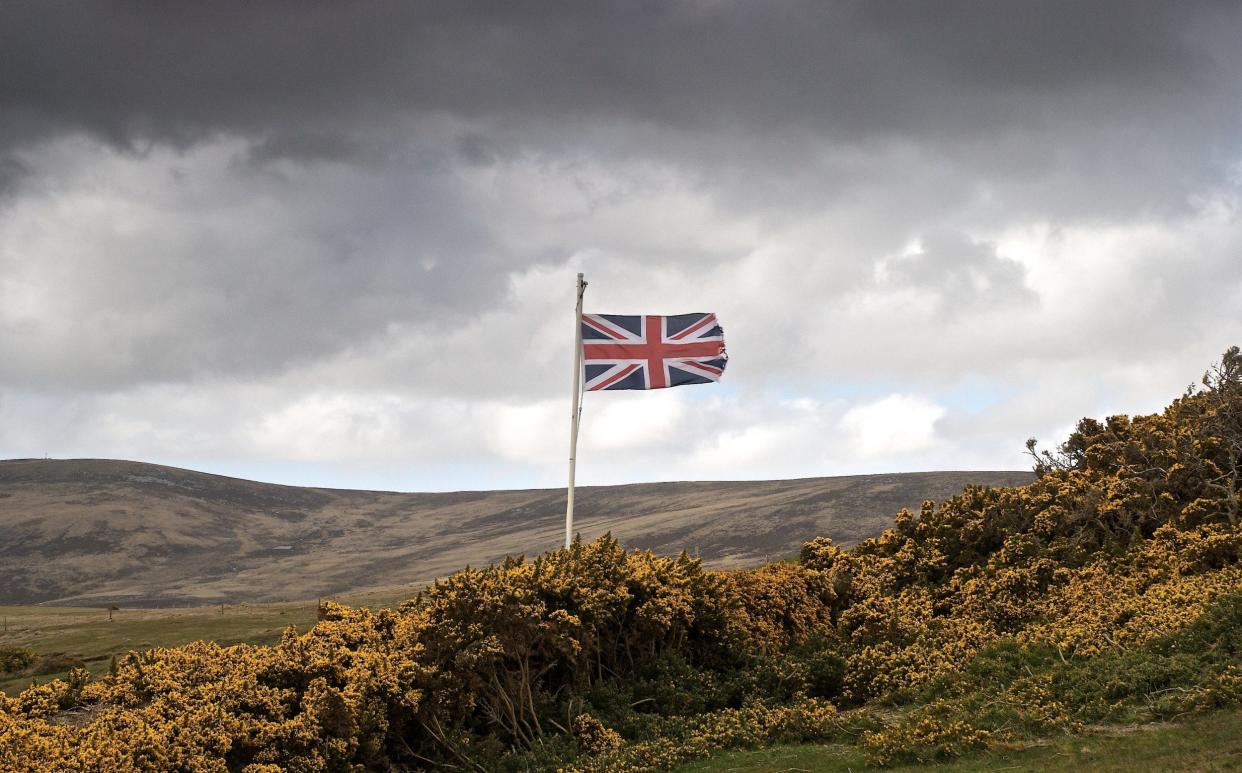COP promises are killing the Falklands oil bonanza

There is a good deal of oil in the Falkland Islands. The British Government has been very supportive of the exploration needed to discover this. The next step is to get the oil on line. Can that step be taken?
In the great Sea Lion Field, there are roughly 2.7 billion extractable barrels. The main firm involved is Navitas Petroleum, an Israeli company. Rockhopper Exploration, a British company based in Salisbury, has a 35 per cent stake.
There is, however, a political problem with a financial consequence. Argentina, which claims the Falklands as its territory, always objects to any economic development there. As a result, banks will not lend the $900 million (£715 million) required on normal banking terms. The Falkland Islands government therefore wants to issue bonds to finance the project. For that, it needs a partial British government guarantee.
In October, HM Treasury refused this. In doing so, it did not use the normal Foreign Office-style argument about the danger of inflaming Argentine opinion (though one imagines this thought will be lurking somewhere in the British official mind). The problem, it said, is climate-change commitments.
As part of the Cop26 Agreement reached in Glasgow in 2021, Britain agreed not to give direct support to the development of hydro-carbons “for the international unabated fossil fuel energy sector”. That decision, if applied to our overseas territories, amounts to an act of unilateral energy disarmament by the UK, at a time when, partly because of the war in Ukraine, we need energy re-armament.
In the Falklands lies a substantial amount of oil, probably enough, eventually, to more than halve Britain’s net daily imports from foreign countries. It is oil from a friendly source on which Britain could, if need be, rely. If the Treasury sticks by its decision, we will continue to be over-reliant on oil from bad places.
Britain suffers from the fact that, unlike many countries, it does not have its own strategic oil reserves. The Sea Lion field could help remedy that. Navitas also argues that the carbon effect of its work will prove neutral because it will undertake a regeneration programme for the islands’ famed peatlands.
In July, Rishi Sunak said that issuing new oil and gas licences for the North Sea was “entirely consistent” with the Government’s net zero plan. It is not obvious why the same argument should not apply to the Falkland Islands, which are surely, as the Government says in other contexts, “family” rather than “international”. Besides, Britain always insists that it will defend the right of the Falklanders to develop the islands for their own economic benefit.
On Sunday, Javier Milei was inaugurated as the new President of Argentina, writing “Viva la Libertad” (“Long live Liberty”) in the registration book. “The only way out of poverty is with more freedom,” he declared. He is aligning his country away from China and Russia and towards Western attitudes. His arrival could be propitious. He wants to “bury decades of failure”. Argentina’s most spectacular failure of modern times was its military invasion of the Falkland Islands in 1982. He has shown no sign of wanting to re-enter that territory.
It cannot be beyond the wit of Britain to back Falklands oil, for our own good and that of our loyal overseas territory.
The old Wombles

The Wombles are returning, the BBC has announced, “nestled in a new soundscape for Christmas 2023”. It doesn’t sound as nice as “wombling free”. As someone who was just too old to be their original target market, I have always felt slightly disdainful of those shapeless, but beaky-nosed burrowing animals who infested Wimbledon Common; but I admit they meant well.
Their purpose – much more dominant than the story lines – was what is now called upcycling (rather than recycling). “Underground, overground”, the Wombles insisted on “making good use of the things that we find/Things that the everyday folks leave behind,” such as turning an old cardboard box into a serviceable chair.
In their environmental concern, the Wombles crested – perhaps even led – a new wave of thinking. But their approach had nothing of the eco-warrior about it. Indeed, it had conservative roots. Uncle Bulgaria, an elder of the tribe, was probably born in the Victorian era: “He could remember when it wasn’t behind the times” to make do and mend.
Fame went to the Wombles’ heads, of course. It was not their fault that Jimmy Savile appeared on the Christmas Top of the Pops, 50 years ago next week, dressed – probably for nefarious purposes – in the costume of Orinoco Womble, the family’s lead singer and songwriter. But it was borderline racist when they sang (as I recall my much younger cousin doing in a special soupy voice) “Up in bonny Scotland, where the Loch Ness waters wash, /Live the members of the auld McWomble clan./ They eat porridge every morning, washed down with orange squash/ And a slice or two of steaming haggis flan. Och, aye!”
Despite their Wimbledon roots, the Wombles were globalists. They took their names from places or geographical features they had seen in Uncle Bulgaria’s atlas – Tomsk, Botany, Bungo; Orinoco indeed.
It is regrettable that the new readings have removed the French accent of Mme Cholet, the cook of the Wimbledon burrow, on the grounds, says the director, Johnny Vegas, that “the French don’t speak like that these days.” They never did, Mr Vegas, any more than the Russians speak like the meerkats in the ads.

